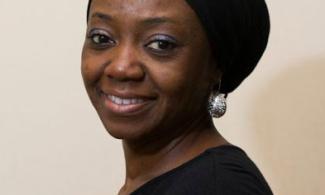
“It is hard to envisage an end to Boko Haram violence while government forces employ violence with impunity.” Zenn & Pearson

With each passing day of horror in Nigeria, as terror on citizens escalates and the body count mounts, it is becoming increasingly clear that injustice and the disregard which characterizes our relationship with rule of law is at the heart of our problem.
As Boko Haram wages war and others take advantage of the insecurity, paranoia is rising and so is the pressure on security agencies and state governments to address the fears of Nigerians. One result is that we are becoming dangerously accepting of the infringement of the rights of thousands of Nigerians. There is no justification for incarcerating innocent people, torturing and maiming them, impoverishing them and destroying their homes and property all in a bid to fight terrorism. This only makes it harder for Nigerian authorities and the rest of us to secure peace and hardens the terrorists’ position towards us.
The unfortunate truth is that the wide social injustice that we have generally accepted has come home to roost. All the years of passively receiving information about police and military brutality, extrajudicial killings and even rape, child abuse and domestic violence has left us morally weak and open to exploitation by the terrorists and those in authority. This weakness is compounded when we are selective about what injustices we choose to focus on and unfortunately with the rising insecurity; we are called upon too frequently.
For those who have carefully tracked the evolution of Boko Haram from a relatively non-confrontational sect talking about political and social injustice albeit with radical theories to a murderous, depraved group, one message comes out consistently: that the violent impunity with which the security agencies have dealt with the members of the sect and their families is part of the reason for the escalation in violence. It is generally accepted now, that the extra judicial killing of the sect leader, Mohammed Yusuf in 2009 along with many other members, sparked the campaign of terror which has now engulfed us all. However, while there was mild condemnation, the majority ignored the news and maybe a few thought the killings were justified. Now we are paying for our silence and acceptance.
Zenn and Pearson, in Women, Gender and the evolving tactics of Boko Haram, provide insight about Boko Haram’s escalation of the war to include the kidnap of women and young children. As far back as January 2012, Shekau allegedly threatened to kidnap the wives of government officials because the government was imprisoning and purportedly sexually abusing the wives of members of the sect. No one came to the defense of these women for whom there was no evidence that they were implicated in terrorism; now Boko Haram is inflicting their rage at this injustice on other innocent women, young girls and children.
As we grapple with the large-scale democratization of violence and the almost total relinquishment of the monopoly over the use of force by our Federal Government the accusations are pouring in and sadly they are not directed where they should be. “Why don’t people care about those being held in Abia as suspected terrorists?” “Why isn’t anyone talking about the attack on churches, on the deaths of soldiers in Borno?” The counter questions are: Where have you been all these years when the police routinely incarcerates innocent young men in place of the big man’s son who has committed a crime which needs to be atoned for? Where were you when young men were gunned down in Apo and the story was being framed as a victory over terrorism? In fact, where do you stand when the mother who worships in your church or mosque cries about her child(ren) arbitrarily kept from her by her husband?
How do we decide what to care about?
As a society we cannot pick what injustices to fight – we must fight them all. We must adhere to rules and allow for process to take its course. We cannot ignore the fact that thousands are being held and persecuted and we must not think that the cries of the innocent which we have blocked out will not find other ways of reaching us. How can we continue to live glibly in a society where it is okay for the police to waste people at will even if they are guilty? Blackstone’s Rule states that ‘it is better that ten guilty persons escape than that one innocent suffer’. All over Nigeria, millions of innocents are suffering and we must heed the warning that ‘justice is the only route to enduring peace and security because injustice breeds insecurity’. We must change the tide and start putting the pressure where it truly belongs – not just on each other as citizen advocates but on the institutions and the people within them who must be held accountable for the powers they hold and wield in trust for us. If we don't, then we must also accept that we have set the perfect stage for increased insurgency and terrorism in Nigeria.